Affiliate links on Android Authority may earn us a commission. Learn more.
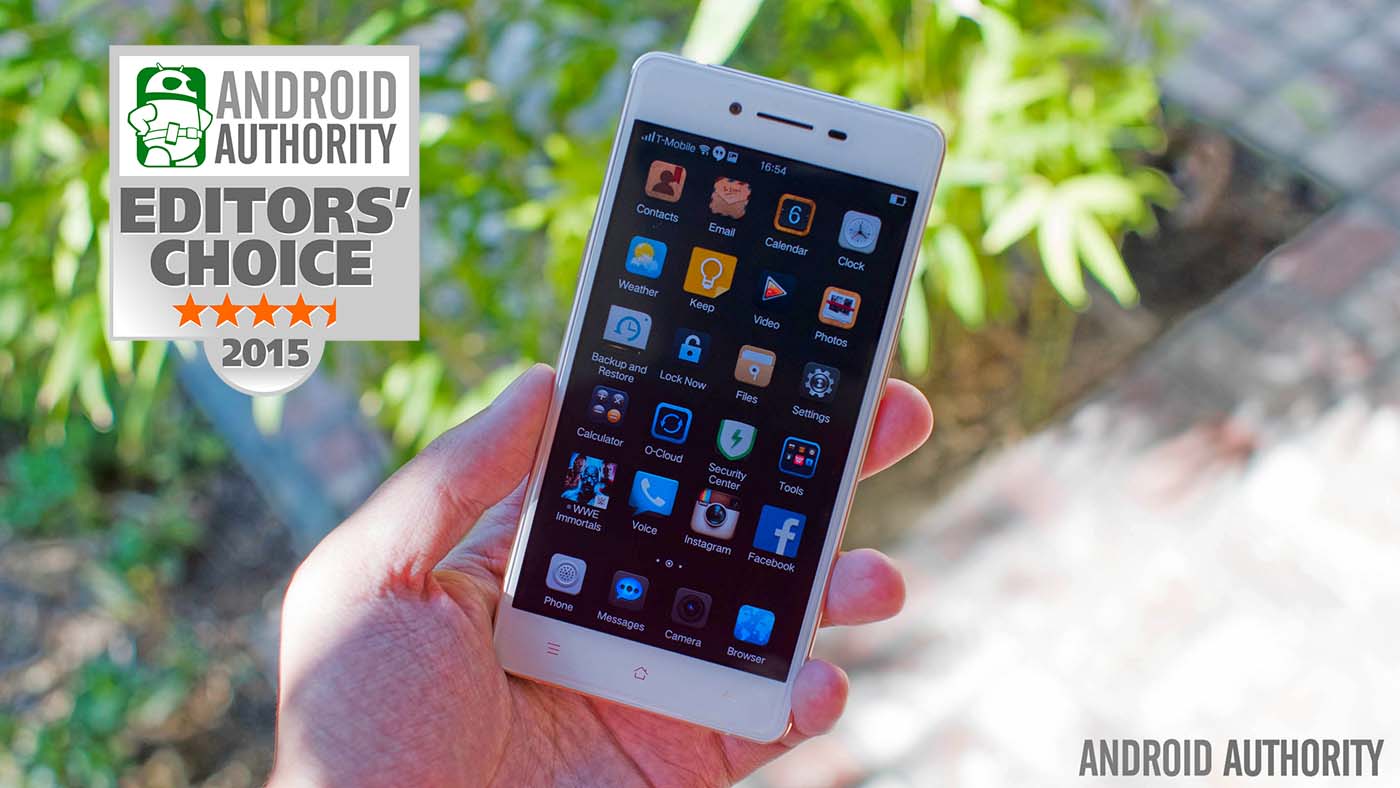
OPPO R7 review
Wondering if OPPO's newest mid-ranger is worth your hard-earned money? We'll find that out, and more, in our full review of the OPPO R7!
By
•
Published onJune 26, 2015
•
•
OPPO R7
The OPPO R7 is a solid with with a more than solid, beautiful industrial design.
What we like
- Metal construction is sturdy and lovely, the definitive highlight
- AMOLED screen was a good choice
- Snapdragon 615 proves reliable for daily usage
- Headphone jack returns!
- Dual SIM or microSD card expansion available
- 8 megapixel front facing camera
- Color OS is smooth and snappy
What we don't like
- Thin phone means thin battery, average longevity at best
- Display is of good but standard quality
- Spec hungry will want more power
- No NFC?
- Camera is average, post processing hurts it
- Color OS still an odd version of Android for most
Our scores
Battery
Display
Camera
Software
Design
OPPO R7
The OPPO R7 is a solid with with a more than solid, beautiful industrial design.

When OPPO launched the super-thin R5 smartphone last year, it certainly impressed with its sleek design language, though the device left a few things to be desired. OPPO decided to sacrifice a few key functions and specs for the sake of slimming down, which actually turned out to be a negative in the long run. At first glance the successor to last year’s model, the OPPO R7, seems to avoid these same mistakes, but how does it hold up against the competition? We find that out, and more, in our full review of the OPPO R7!
Read and watch: OPPO R7 hands-on and first impressions
Design
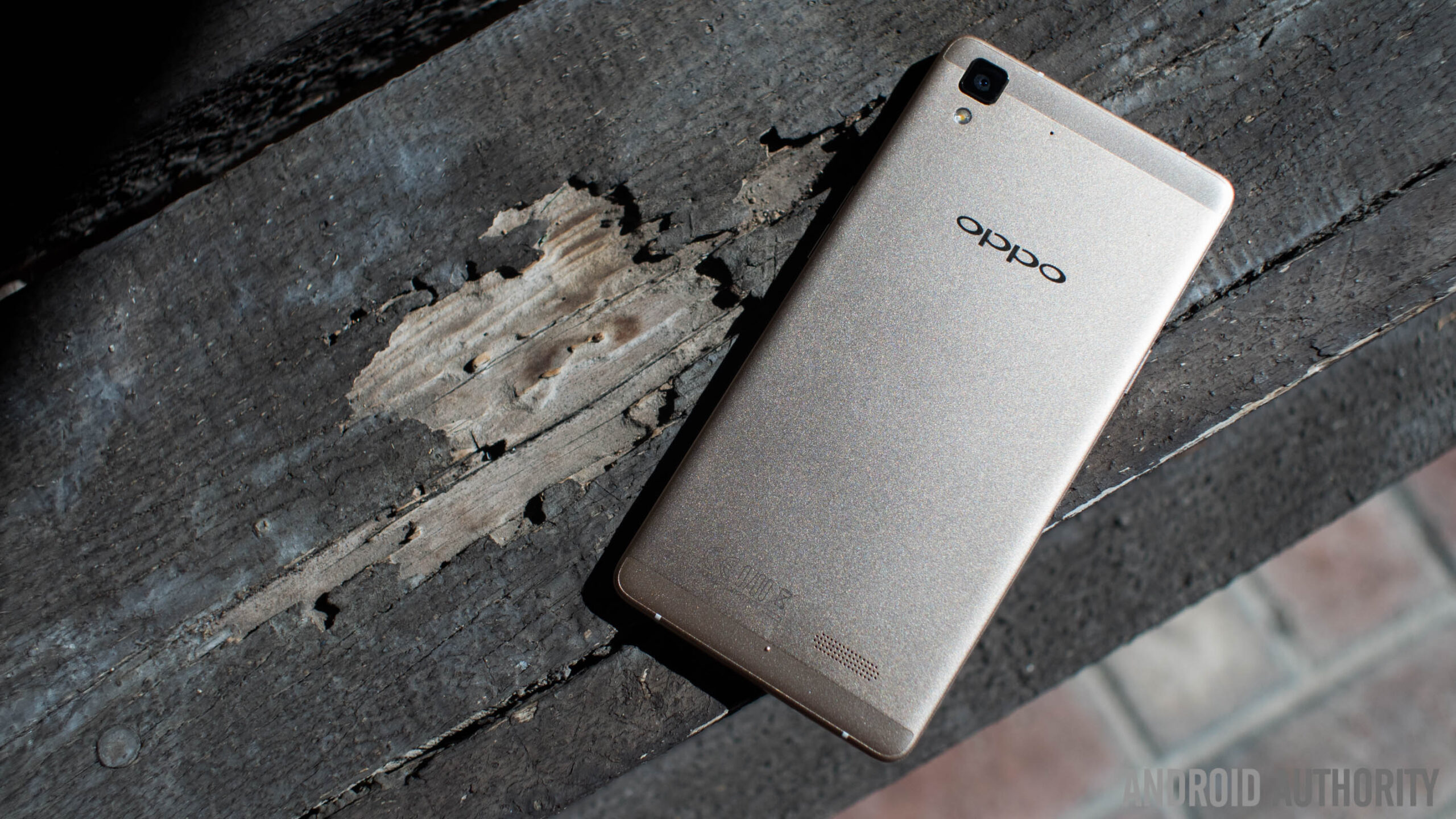
With a Snapdragon 615, the OPPO R7 stands towards the top when it comes to performance.
Although the R7 isn’t as noticeably thin as last year’s R5, this new model is still a really slender device. Measuring just 6.3mm thin, the R7 was able to regain the 3.5mm headphone jack this time around, which was a feature that was noticeably missing from the R5. The entire frame consists of a premium-feeling metal material that provides a slight lip on both the front and back sides. The combination of the slight lip on the sides and hefty metal build makes for a nice in-hand feeling. The right side features the volume rocker and SIM card slot, the left houses the power button, and at no surprise to us, the USB port is found at the bottom. A 2.5D glass panel can be found up front covering the 5.0-inch 1080p display, with capacitive keys housed directly below the screen.
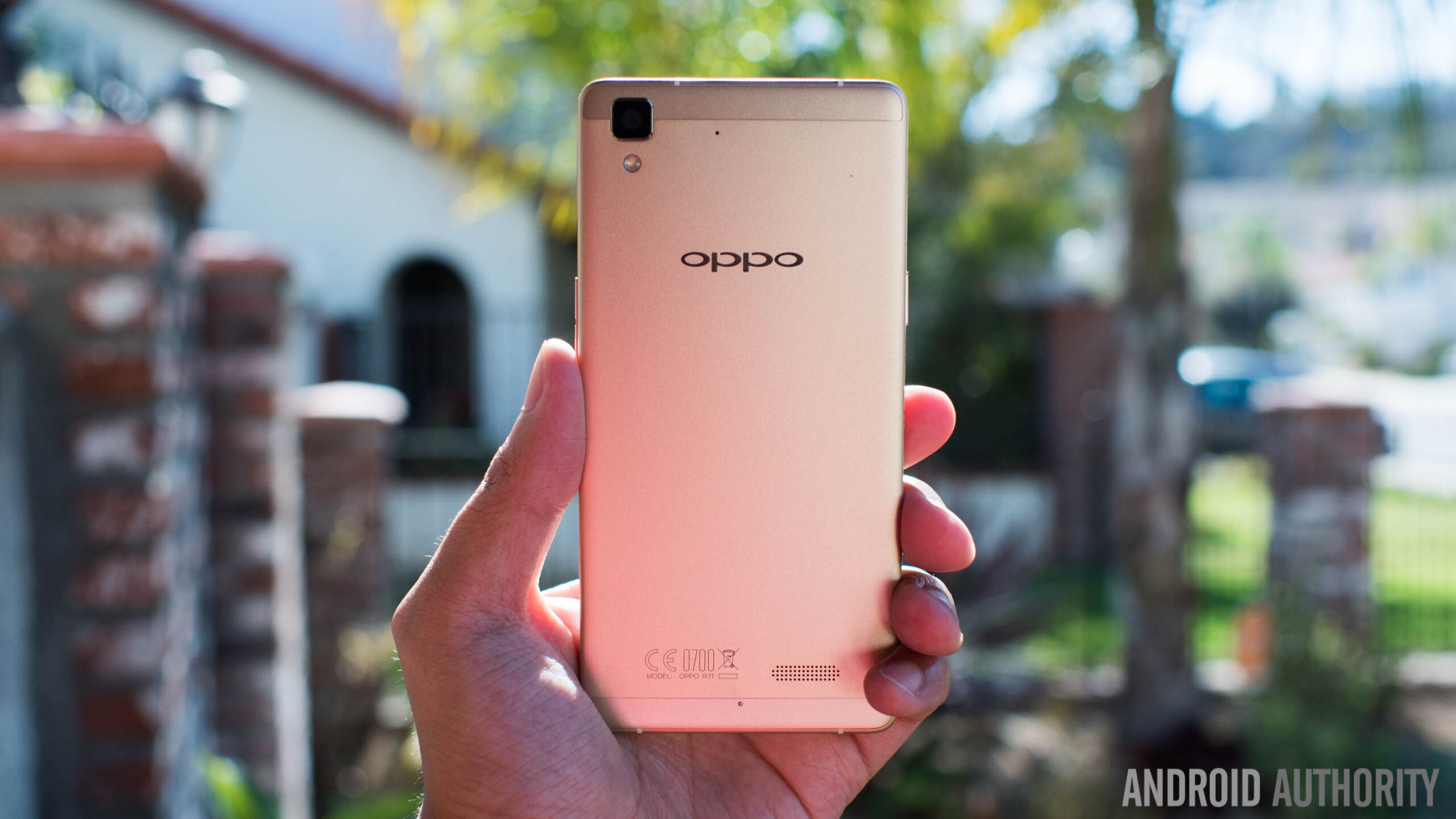
Plenty of phones these days are trying to be as slim as possible, but a beautiful design doesn’t come without its caveats. Many phones with this type of build quality slip around in the hand pretty easily, which can make for an unpleasant overall experience. But while the OPPO R7 doesn’t feel like an indestructible phone in the slightest, it doesn’t feel particularly delicate either. It sits very solidly in the hand and doesn’t slide around, and the lightweight plastic case included in the box also helps with that a bit. This is another great looking phone in the line that doesn’t sacrifice much to achieve its size. For the OPPO R7, thin is definitely in.
Display
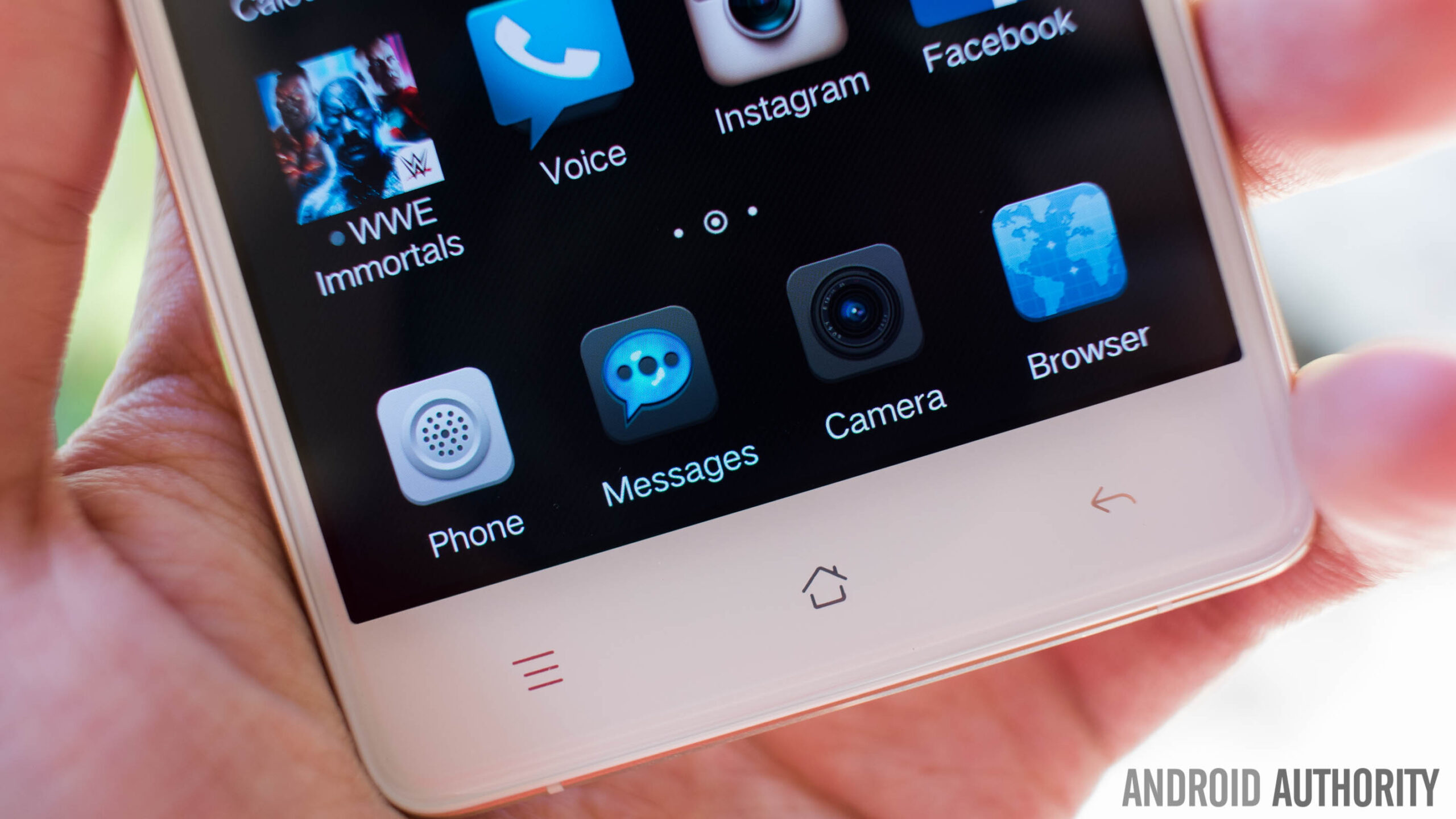
The R7 features a 5.0-inch Full HD AMOLED display with a standard pixel density of 445ppi covered in Gorilla Glass 3. The AMOLED panel works to bring a higher level of saturation than most other types of panels in smartphones, and the colors on this one show quite well in mostly all tasks. While the viewing angles are quite good, the prominent black bezel surrounding the lit panel is very noticeable at times. Nonetheless, we found no problems with sharpness in areas of text and contrast kept blacks at a good level – neither over or underachieving. Gaming remained a treat for the eyes, as I spent quite a bit of time with Telltale Games’ The Wolf Among Us. In this particular game, I found the cell shaded noir graphic style quite lovely to watch. This might not be a particularly overachieving display, but going AMOLED certainly helped elevate this otherwise standard experience – high standard, but standard nonetheless.
Performance
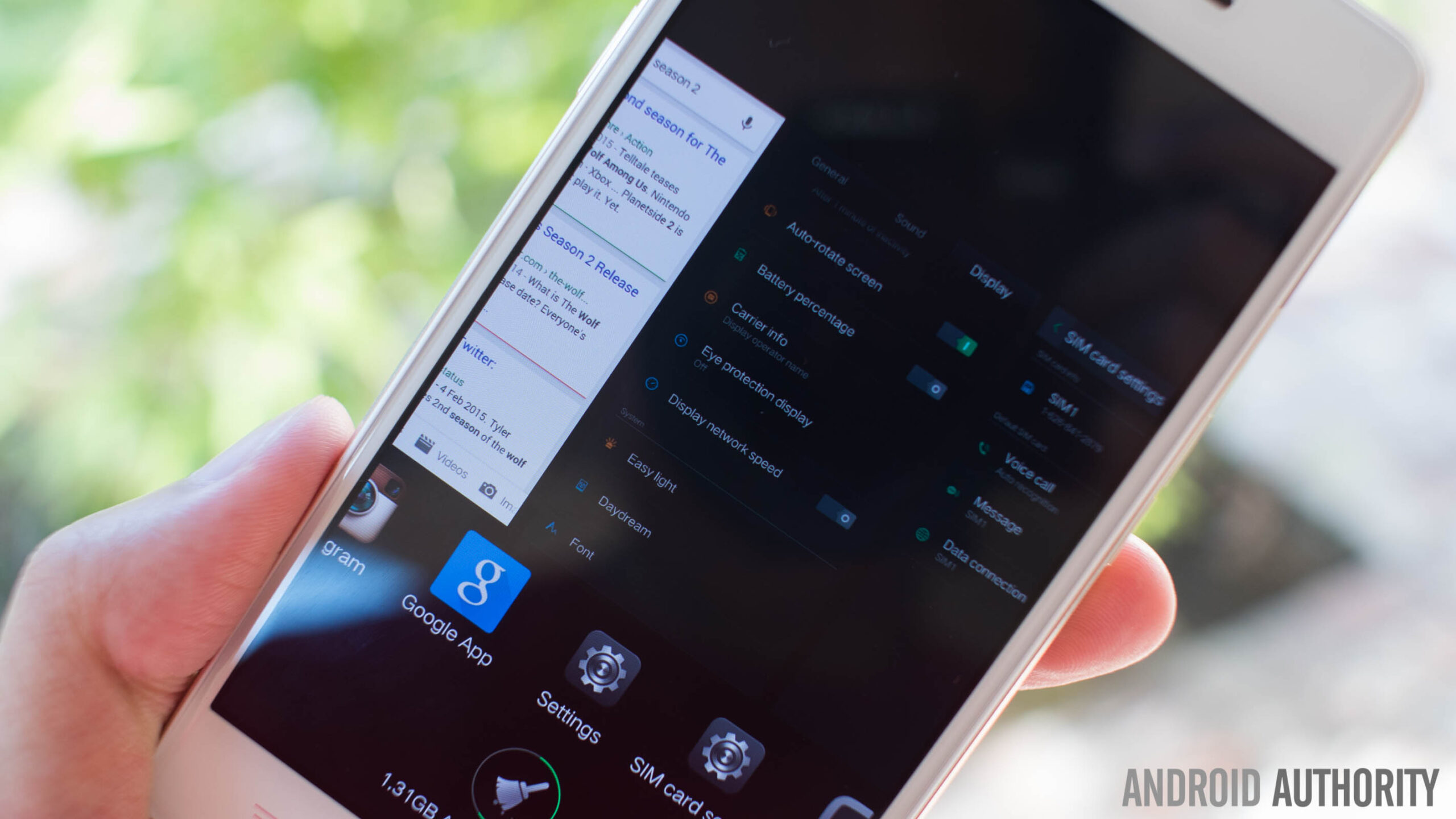
As is the case with many devices this year, there is a focus on software optimization with the processing package rather than just a move toward sheer power. By many consumers’ beliefs, Qualcomm’s Snapdragon 615 processor is considered a mid-range CPU through and through. However, this device’s CPU features eight cores, which actually proves to perform quite well with everyday tasks. The device also features an Adreno 405 GPU and 3GB of RAM to help power OPPO’s Color OS 2 software overlay, which feels surprisingly simplistic and light.
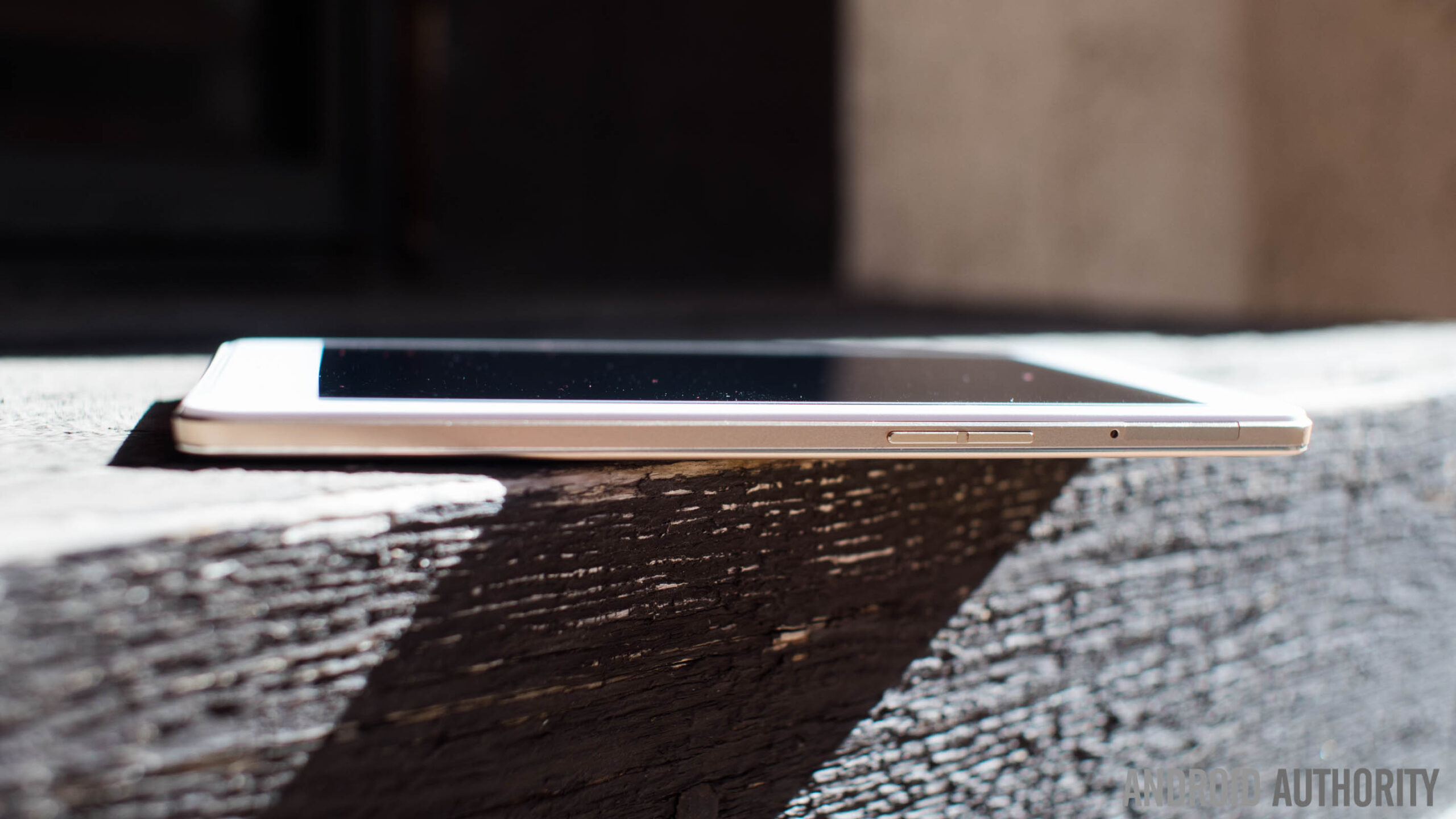
User interface transitions moving about render little to no incident in performance, and changing applications is quite easy. For example, writing down a couple of entries in Evernote then taking snippets of them back and forth to Instagram posed no challenges whatsoever. And for an even better example, my gaming experience with The Wolf Among Us has been a breeze, with only the occasional frame rate issue between scenes. My only real problem has to do with the recent apps screen – not only do you need to hold the menu button to get to this screen, but scrolling and moving from app to app oftentimes took a lot longer than expected when each app had to reload completely. Overall, though, the device performed perfectly well in day to day usage, and with how smooth Color OS seems to be now, it’s not hard to put the R7 among the many phones that perform very well on the daily.
Hardware
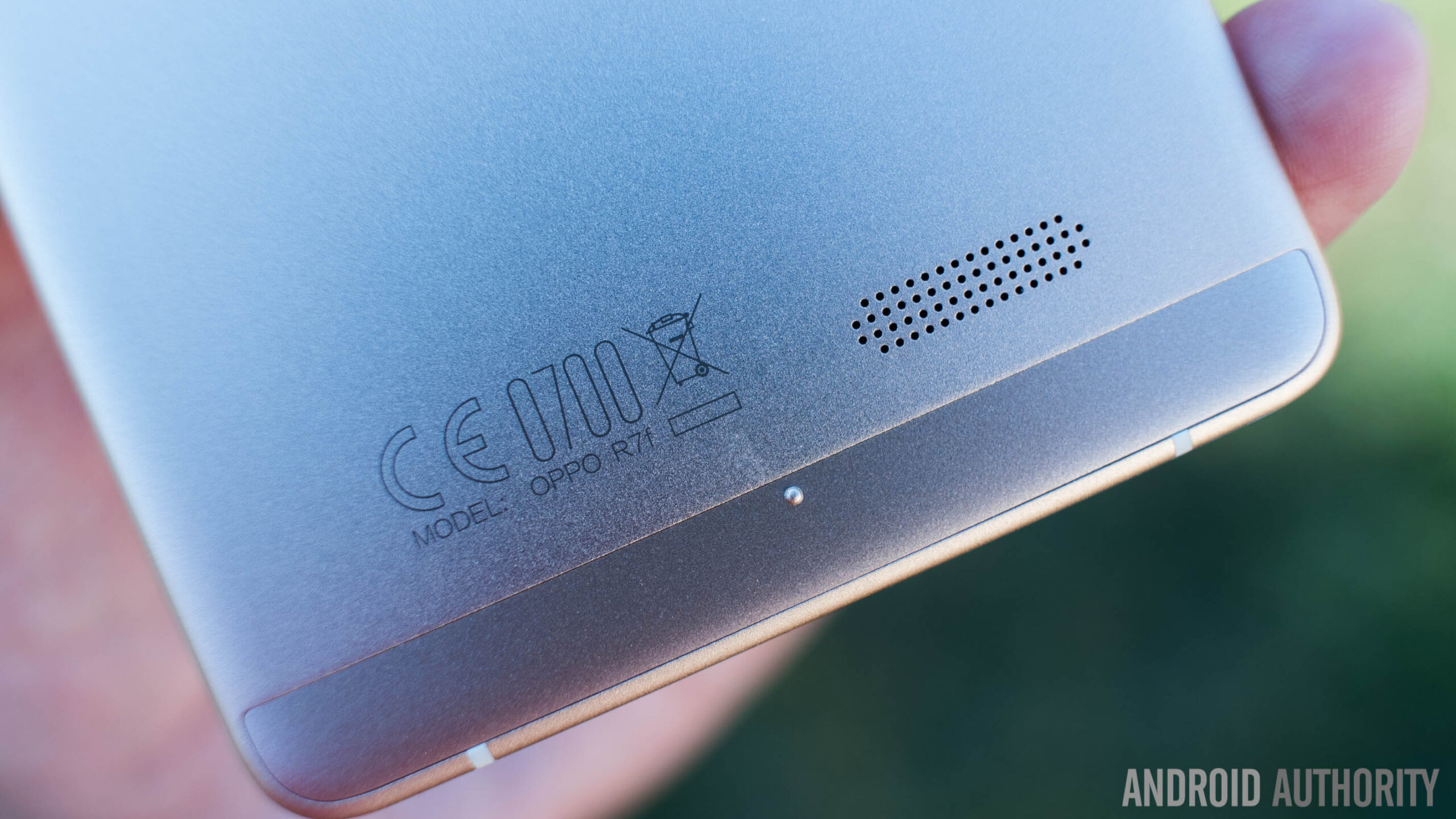
Perhaps the most important piece of news on the hardware front is the return of the 3.5mm headphone jack, which was omitted because of size constraints from the R5. The phone is now just thick enough to accommodate it, and the audio coming from the jack is solid. While on the subject of audio, phone calls come in loud and clear, though we did notice a few disruptions in the signal at certain points in our test phone calls. The rear-facing speaker is pretty loud and has a bit more attention given to the lower ends, which isn’t typical of units of this type. There’s also a subtle dimple on the top and bottom of the phone’s back plate that lifts up just enough to emit sounds better from the surface, which is a really nice touch.
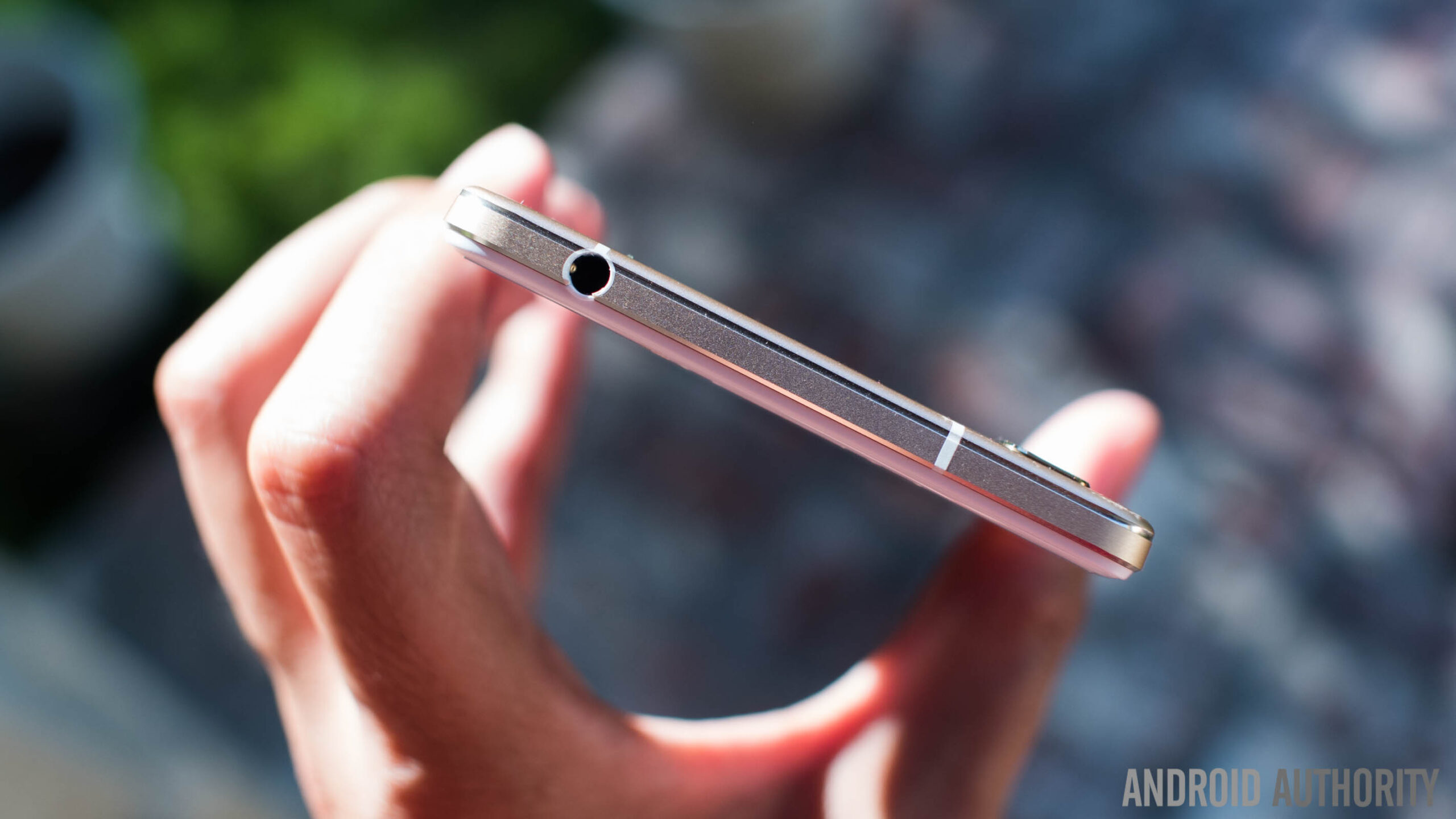
This Chinese network version of the R7 posed an all too familiar problem for me – a lack of LTE connectivity – but thankfully the HSPA+ network on T-Mobile has been more than adequate for using this particular region’s unit for daily usage in the States. The R7 comes with a dual SIM card slot, with the ability to repurpose one into a microSD card slot for storage above the built-in 16GB. Other connections include the usual Bluetooth connectivity and sensors, but unfortunately there is no NFC, which many users will likely miss on this unit. OPPO also included a handy feature in the R7 that allows the device to sense when it’s covered up, for instance when the device is in your pocket. When the phone senses this, all screen-on gestures or button presses will be glossed over to keep the phone from performing tasks you don’t want it to.
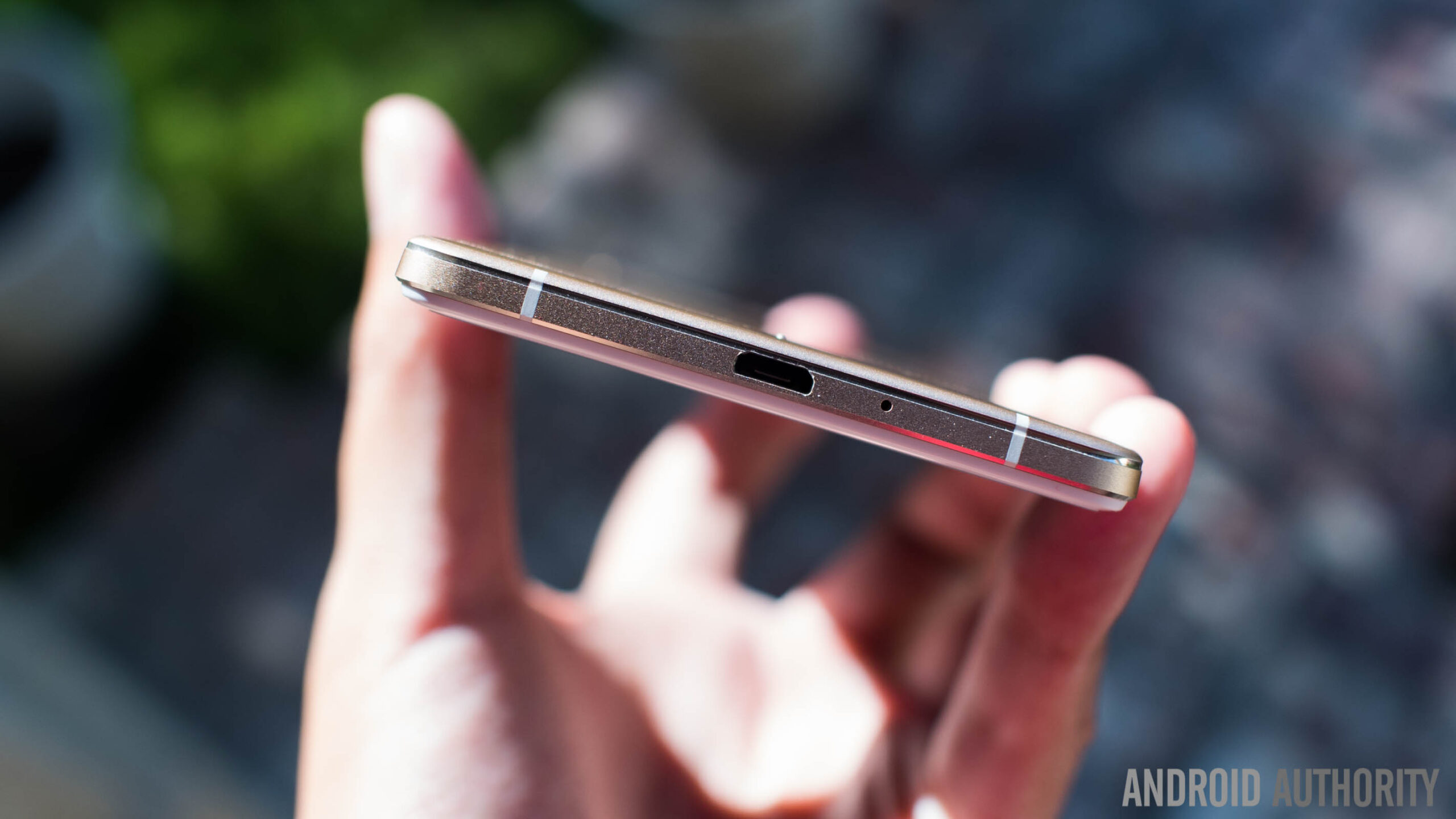
Although the device features a slightly larger chassis than its predecessor, it’s still not enough to warrant good battery life. While the hardware and software optimizations can definitely help, the non-removable 2320mAh unit in the R7 produces battery life that’s about as average as it gets. In heavy usage, I was able to get just over three hours of screen on time, which can be stretched out over a full day with lower levels of usage. Plenty of power modes are available to aid in the longevity departmet, allowing for everything from lower screen brightness to even an underclocking of the processor, but the phone pretty much never stretches to the predicted number of hours in the battery app. Of course, one welcome feature available in the R7 is the inclusion of OPPO’s VOOC fast charging technology, which can bring the phone up from 0% to around 70% charge in 30 minutes.
Camera
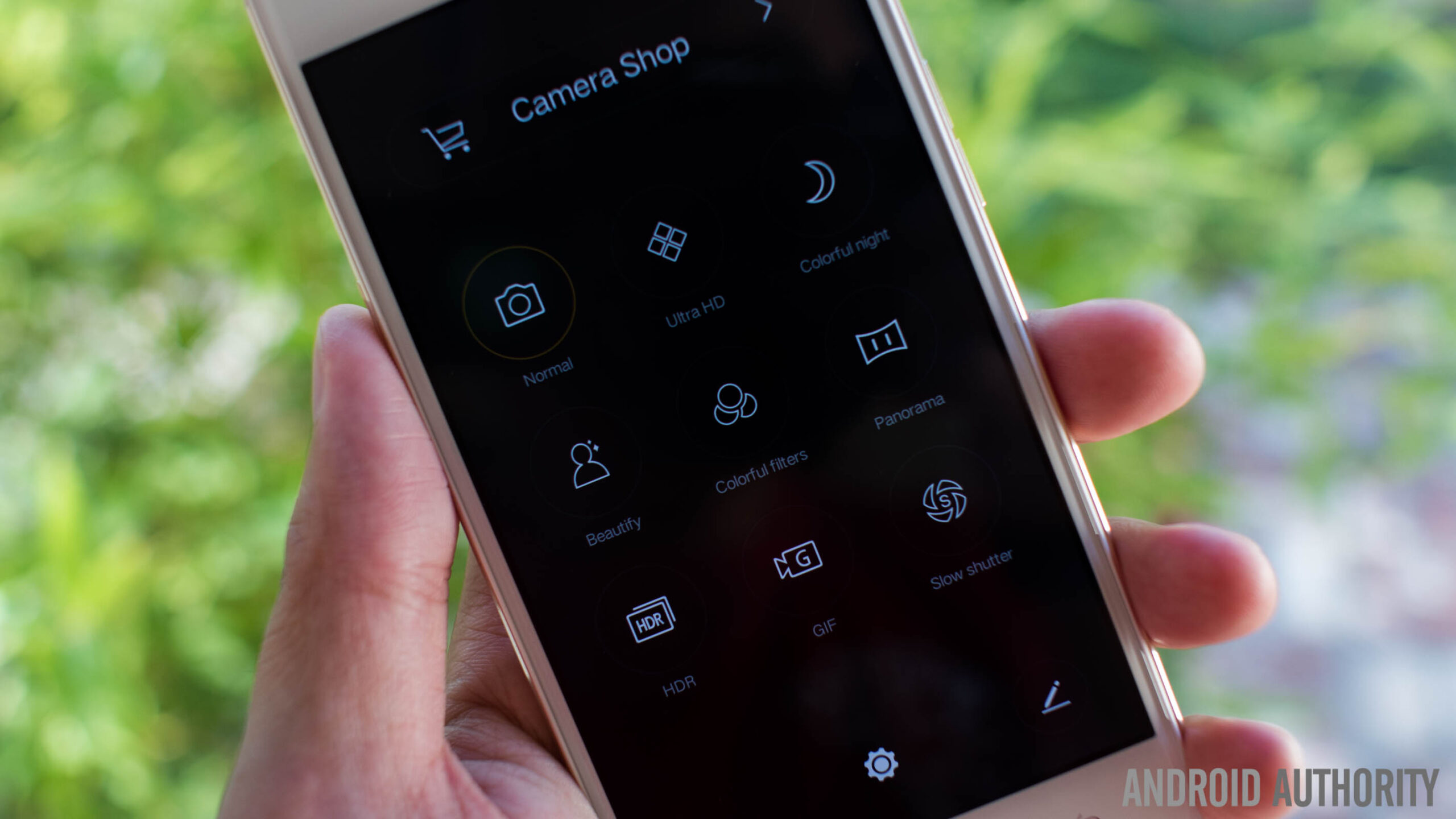
OPPO’s typical camera application returns this time around with a number of modes that were all introduced in their last few smartphones. Plenty of handy modes like HDR, GIF creation and Ultra HD are all present and can be accessed by hitting the icon in the corner of the app. Swiping the viewfinder switches from photos to video capture, which is done in 1080p resolution. Moving around to the front, you’ll be happy to know that the familiar Beautify mode is present, which allows you to take arguably better selfies with the 8MP front-facing shooter. Self portraits are quite good overall, though they lose a bit of sharpness due to some noise reduction in post processing.

Ultimately, that’s the story with the rear facing 13 megapixel shooter, too – while photos typically look quite good as they are, there are some nuances visible in typical shots, including a fuzzy noise reduction observed when zooming in. Pictures are quite bright, perhaps overly so in plenty of them, and HDR unfortunately doesn’t help the dynamic range get much better as the blown out areas of a photo only become slightly dialed back when using this mode. HDR worked really well for us with the OPPO Find 7, so it’s a bummer that the R7’s shooter can’t produce the same – or similar – results. Even so, though, in the right situation, colors get a small boost in saturation, which might be the only takeaway from the standard HDR mode.
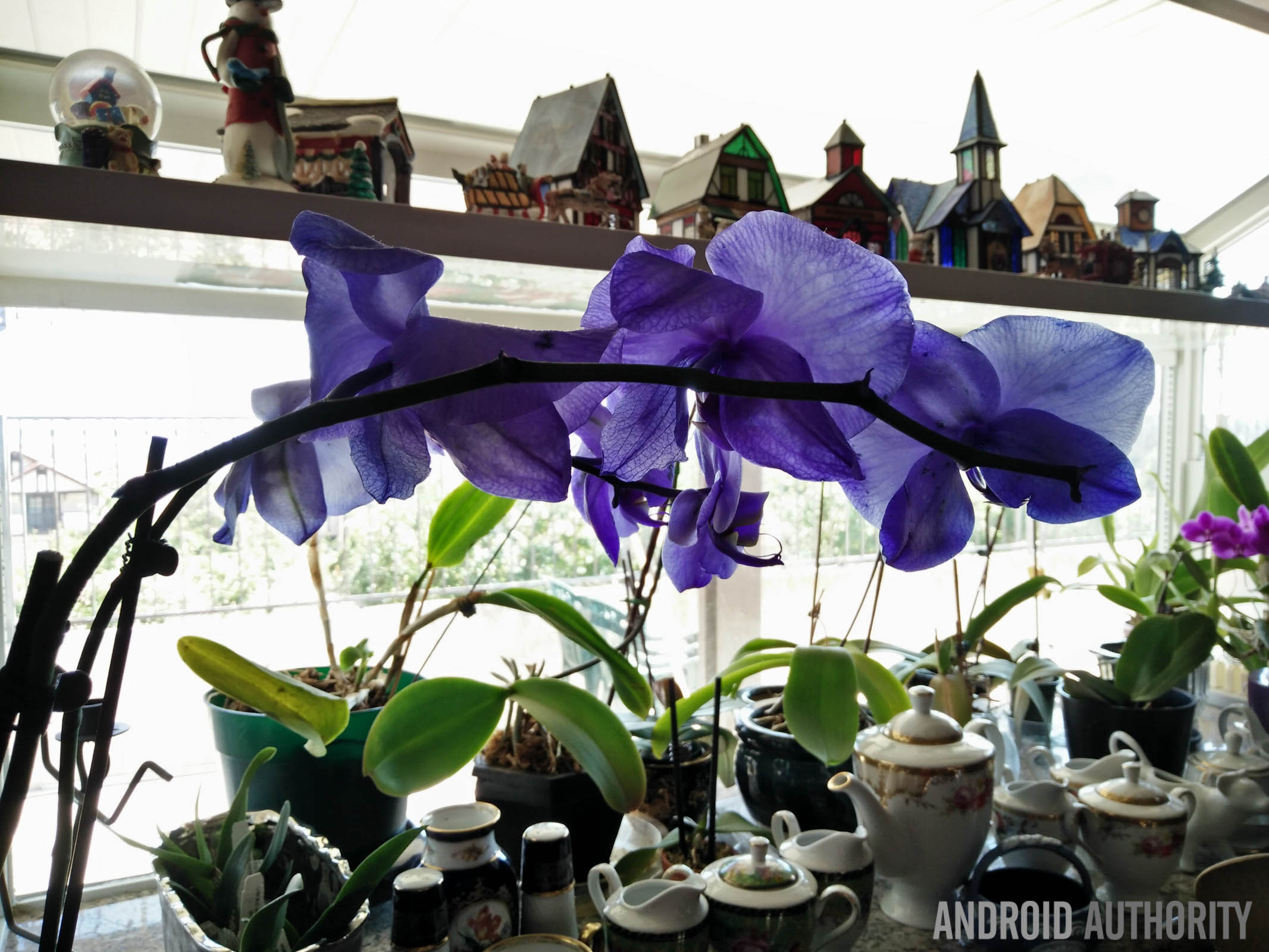
Shots in low light situations suffer more from post processing, but they aren’t the worst we’ve ever seen. If we were to rank low light photos taken by the R7, we’d say they’re just above average, which is unfortunately a common theme when it comes to the R7’s camera. It’s clear that the R7 is a solid day to day device, and the camera falls in line with that. Even with the 8MP front-facing shooter, the experience yields good, but not great, results.

Camera samples
Software
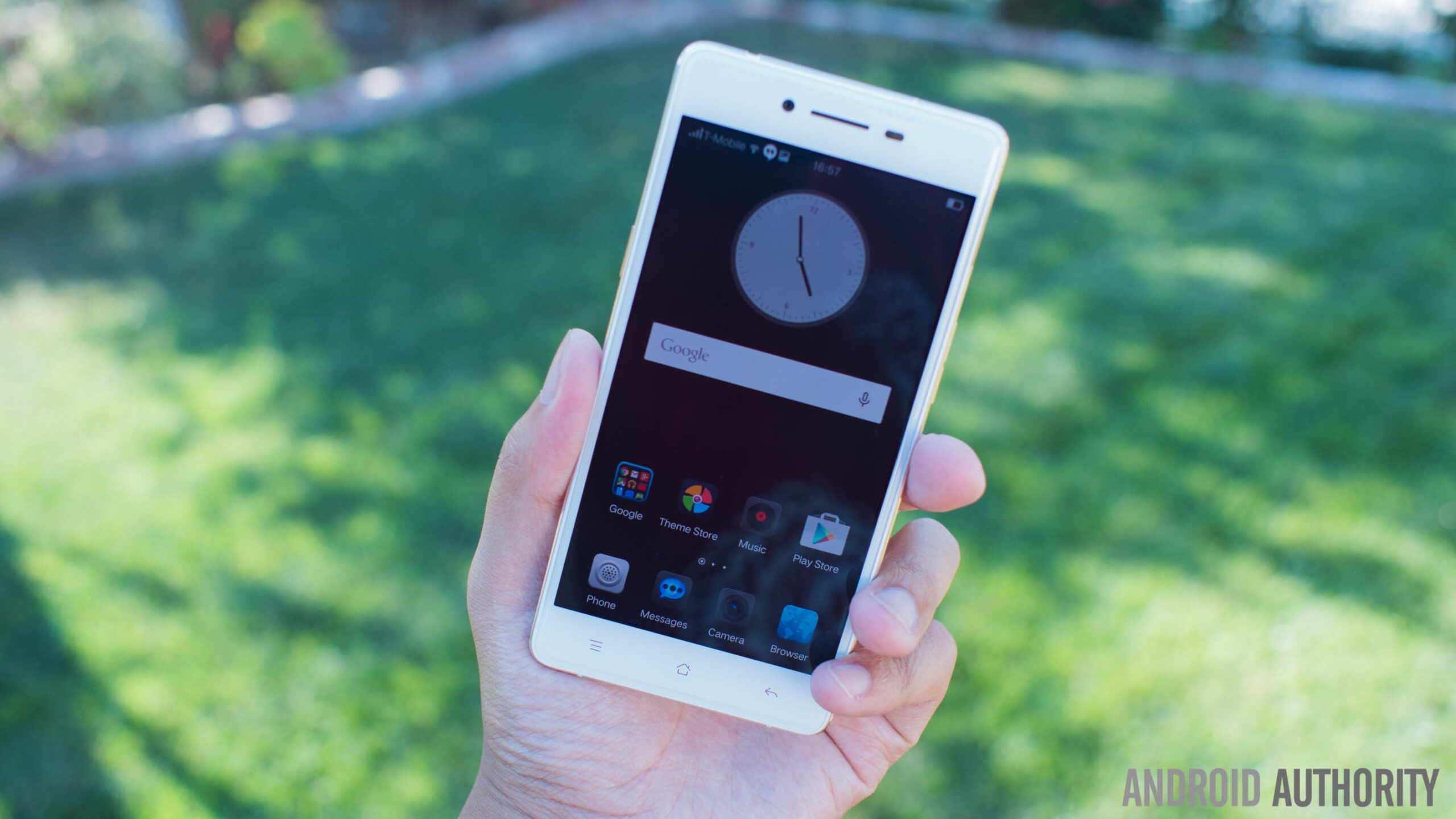
As OPPO told us during our visit with the company at the phone’s launch, it’s no secret that Color OS isn’t the most loved version of Android. So with Color OS 2.1, some changes had to be made. It might not look or perform too differently than before, it’s definitely much smoother. Customization remains a major selling point with Color OS, as it’s pretty easy to change the look of the software with the built-in theme engine, the option to add media pages for some extra fun on your home screens, and even the ability to add different transition effects for the home screens – a feature that will prove itself useful, seeing as how Color OS still doesn’t feature an app drawer.
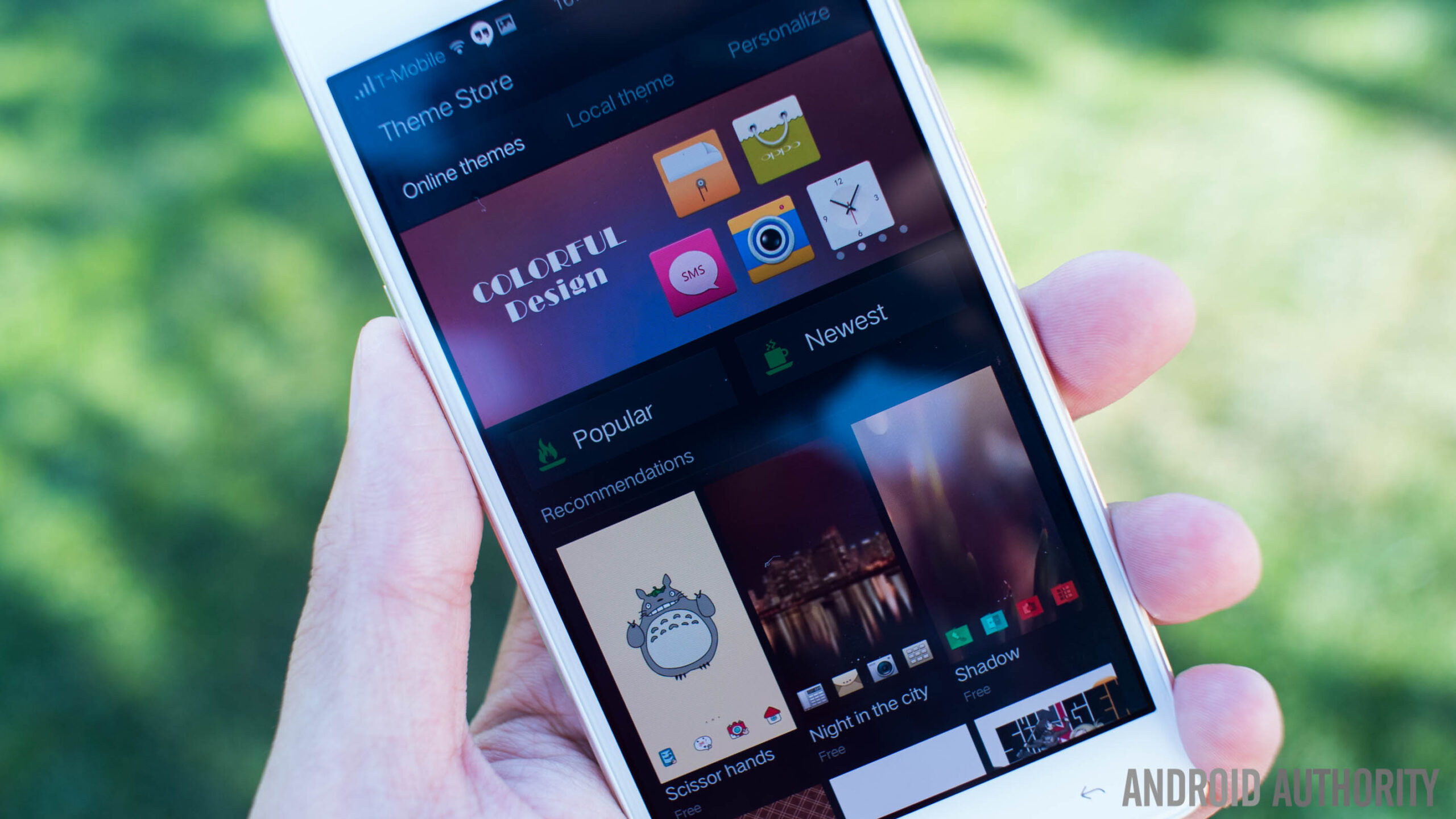
There are some nifty gestures built in to the device like the ability to draw a circle on the turned off screen to launch the camera or perform a double tap to wake the device. You can also program your own gestures for launching applications more easily. In addition, the device features an “eye protection display” mode that places a warm hue over everything when triggered, which is perfect for users with sensitive eyes.
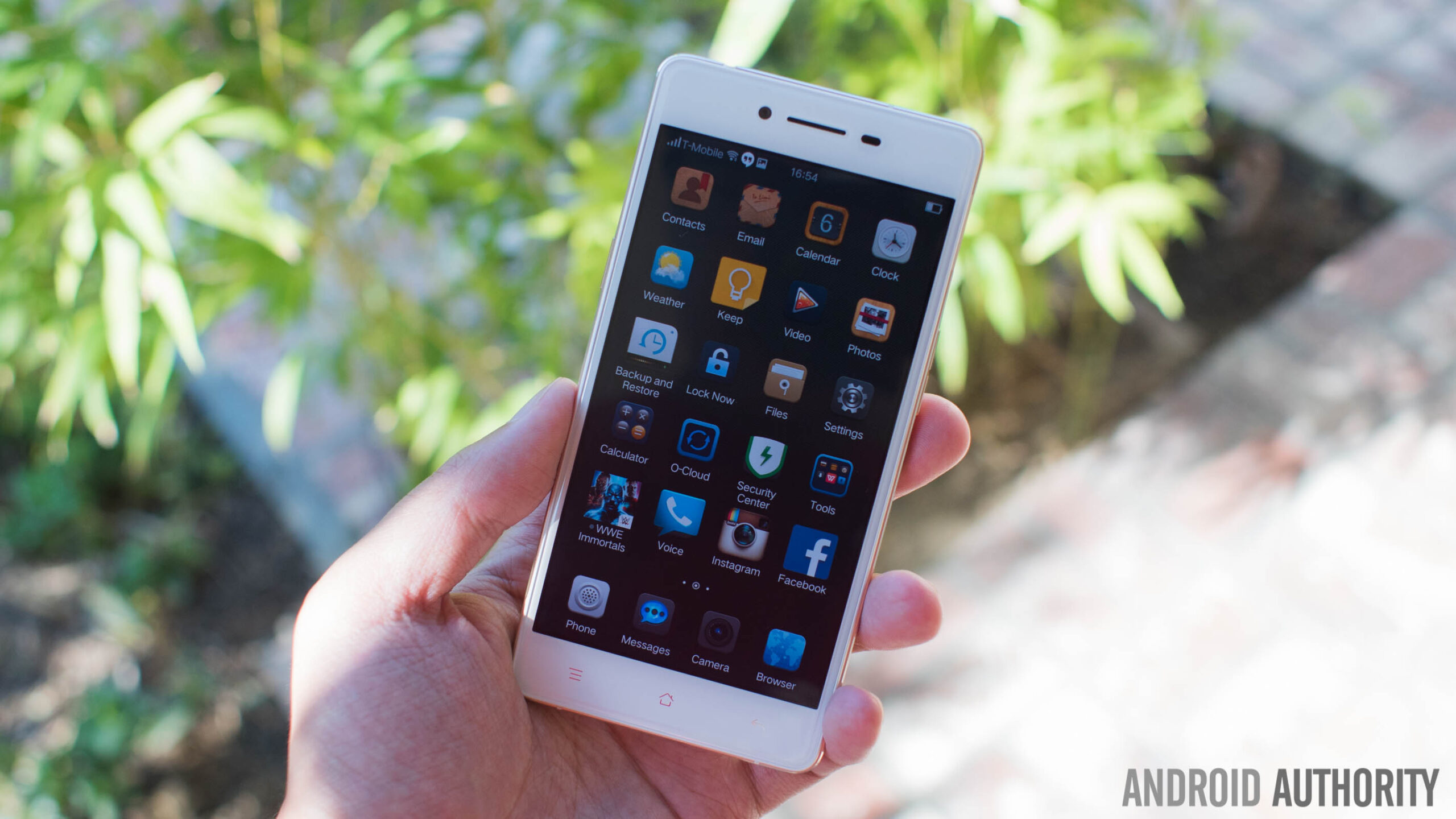
It’s worth noting that the R7 still runs Android 4.4.4 KitKat, which might upset some users. Android 5.0 Lollipop has been out for some time now, so there’s not really an excuse for the device running old software. However, OPPO recently released a beta version of Color OS based off of Android 5.0, which we can expect to see roll out to this device sometime very soon. KitKat doesn’t hinder the device’s performance as far as we can tell, though it would be nice if the R7 ran one of the later versions of Android. Honestly, I don’t think Color OS is all that bad. Despite some issues in translation from time to time and the lack of an application drawer, Color OS handles itself well. Though it could use a bit of polish, and user that lets Color OS stick around should find a smooth, perfectly capable version of Android in the OPPO R7.
Specs
| Display | 5.0-inch AMOLED display with 1080 x 1920 resolution |
|---|---|
Processor | 1.5 GHz octa-core Qualcomm Snapdragon 615 |
GPU | Adreno 305 |
RAM | 3GB |
Storage | 16GB, expandable up to 128GB |
Camera | 13MP rear camera f/2.2 8MP front-facing f/2.4 |
Battery | 2,320mAh, non-removable |
Software | Color OS 2.1, Android 4.4.2 KitKat |
Dimensions | 143 x 71 x 6.3mm, 147g |
Colors | Silver, Gold |
Frequencies | International Version: GSM: 850/900/1800/1900MHz WCDMA: 850/900/1900/2100MHz LTE Bands: 1/3/7/8/TD-40 Taiwan Version: GSM: 850/900/1800/1900MHz WCDMA: 850/900/1900/2100MHz LTE Bands: 1/3/5/7/8/28/TD-40 US Version: GSM: 850/900/1800/1900MHz WCDMA: 850/900/1700/1900/2100MHz LTE Bands: 1/4(3)/7/17(20) |
Gallery
Pricing & final thoughts
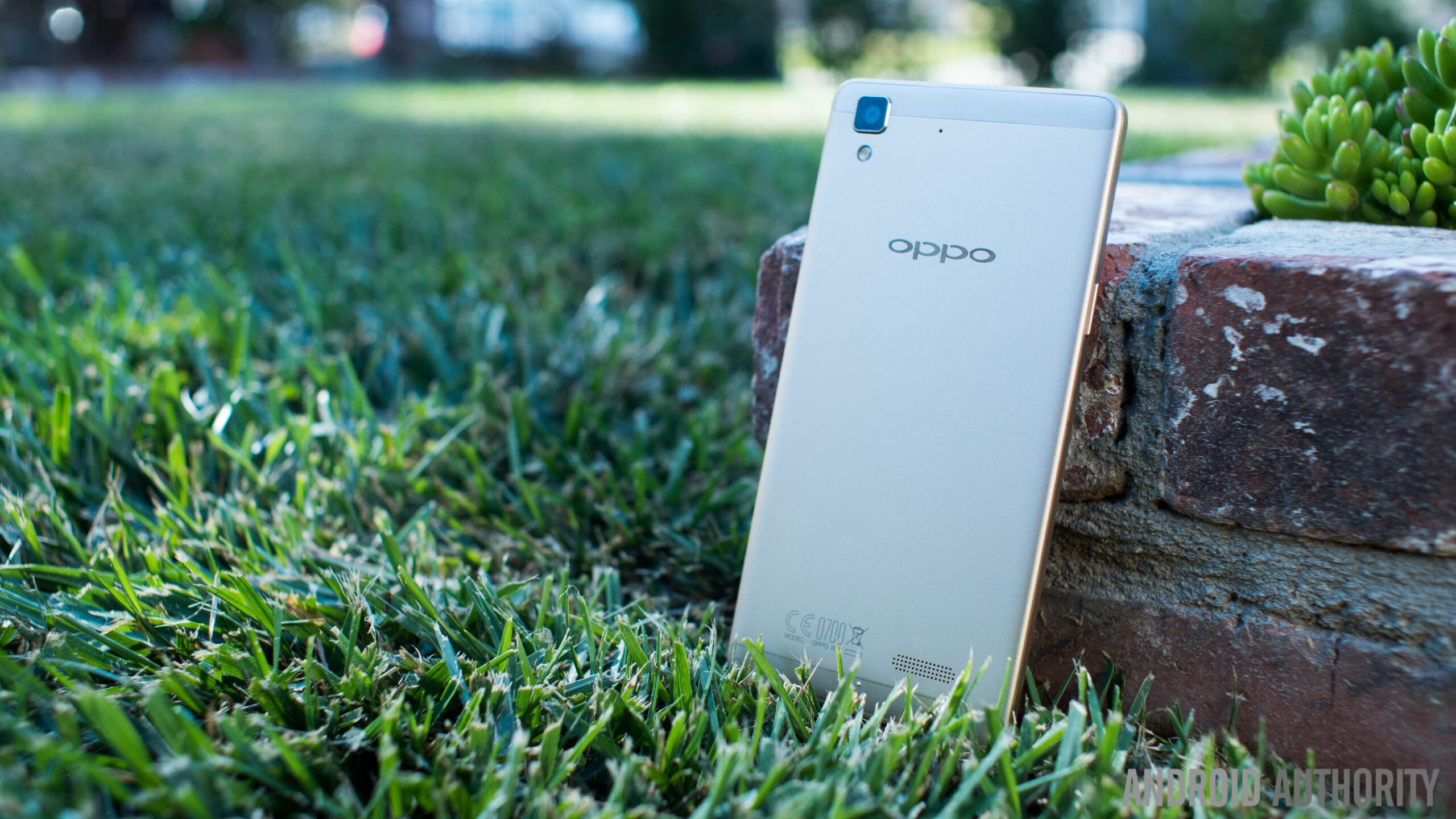
The OPPO R7 is available for pre-order now from OPPOStyle for $399, with shipments starting in early July. For that price, the R7 is quite the deal, especially with its sleek and attractive build.

OPPO has proven time and again that it is not only capable of thinking outside of the box, but also excelling within the confines of users’ high standards. What might be the best part about the R7 is that OPPO is trying to keep the middle path, with a phone that prioritizes great aesthetic and feel with the best possible capabilities fit for its price point. No, the Snapdragon 615 isn’t exactly future proof, but you won’t really feel that along the way. And though the camera isn’t the best one we’ve used, it’s more than enough for typical social media users. Also, Color OS has gotten some of the updates its needed, even if they weren’t in the looks department. The price point won’t break the bank, but once you get this phone in your hand, it feels like it could. And that’s why we give the OPPO R7 our seal of approval.
You might like
Follow